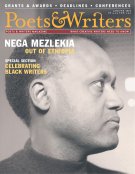At the close of the 1950s—a quiescent decade in American life—a couple of young Minnesota poets named Robert Bly and Bill Duffy decided to shake things up with a new literary magazine designed to castigate the cultural establishment for what they considered its complacency and arrogance, while publishing the work of unrecognized poets they felt the public should be reading. Bly and Duffy used their magazine, The Fifties, to oppose and expose what they saw as the impersonal irony and formalism of American poetry in the post–T.S. Eliot era. Flippant rejection letters ("Your poems remind us of old lettuce") were fairly typical.
Duffy left the magazine after a year and a half to pursue a career as a high school teacher, but Bly remained as its editor, changing its title to first The Sixties and then The Seventies with each new decade. By the time the magazine ceased publication in the 1970s, he had established a reputation as one of the leading poets of his generation. Bly's poetry collection The Light Around the Body won the National Book Award in 1968, and his success continued through the early '90s, when Iron John: A Book About Men spent 64 weeks on the New York Times best-seller list. In honor of his 75th birthday last month, the Minneapolis-based Loft Literary Center, in conjunction with the McKnight Foundation, revived Bly's innovative magazine by publishing the first issue of The Thousands.
"The last issue [of The Seventies] was published in 1972," Bly says. "So there's been a slight gap in the magazine—only thirty years or so."
Despite the lengthy hiatus, The Thousands closely follows the model established by The Fifties, which featured work by a generation of now-famous poets that included Louis Simpson, David Ignatow, and James Wright, and translations of Antonio Machado, Pablo Neruda, Georg Trakl, and Cesar Vallejo at a time when those names were virtually unheard-of in America. As he did in the original magazine, Bly contributed much of the writing in the first issue of The Thousands, including poems, essays, and translations of Swedish poet Tomas Transtromer and Persian poet Shams-od-Din Muhammad Hafez. The issue also features a selection of poems from contemporary writers he feels deserve a wider audience, like Jane Hirschfield, Li-Young Lee, and Thomas Smith.
The idea for reviving the publication originated with the Loft's literary director, Bart Schneider, who recalled Bly's expressing an interest in it a couple of years ago. It was Schneider who acted as publisher for the venture, coordinating efforts by the Loft, the Mc-Knight Foundation, and the Minnesota Center for Book Arts, which created a letterpress cover for the first issue.
"We just thought this was the best present we could give Robert," says Schneider. "We expect it to prompt letters and strong reactions and create a sense of community, which Bly was a master of inspiring from the very beginning."
Perhaps the most infamous element of the original publication was the Blue Toad Award, which Bly presented in each issue to the writer, periodical, or institution that, in his opinion, was most complicit in dragging American poetry down into mediocrity. In The Thousands, the Blue Toad is resurrected as the Domestic Globalization Award—so named for what Bly considers the culturally homogenizing effects of the global marketplace. In the first issue of The Thousands, Bly gives the award to what he scornfully refers to as "the 256 chartered graduate writing programs in the United States currently working hard to lower the level of published poetry in the U.S."
Bly's plans for The Thousands are still uncertain, but they do include the publication of future issues. "I'll look around and see what needs to be attacked—and what needs to be praised," he says. "The magazine will come out on an as-needed basis—perhaps once or twice a year."
Richard Broderick is a poet and co-editor of Great River Review.








